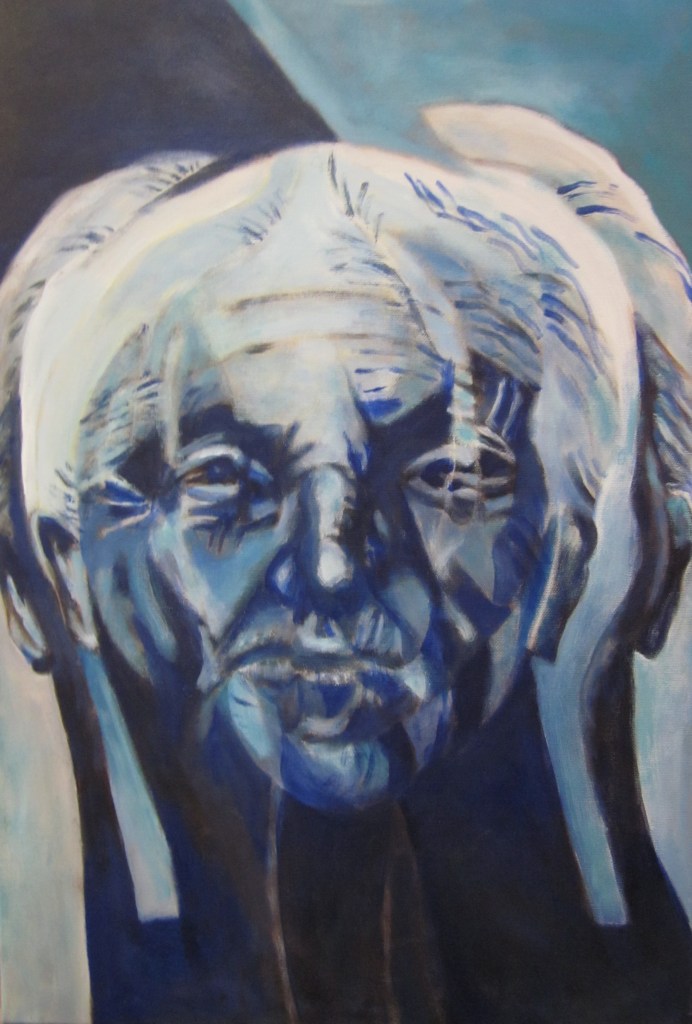The colonial, culture, and the non-colonial
This last week I was necessitated to clarify some things for myself. They concerned concepts – colonial, cultural, communal – all in contexts of conversations with colleagues in the international networks of people who struggle to truly decolonize philosophy. The first two will be the topic of this blogpost. I may return to the other another time soon.
Note: decolonizing philosophy is not just an academic matter, to make a career on, as Tuck and Yang warned us scholars of (in their article “Decolonisation is not a Metaphor“). It is also not only about landrights, as they argue it should be. As central as the issue of land is, conceptual matters are also always, even in the struggle for land rights, crucial.
Concepts can heal and concepts can betray. What is nowadays called ‘gaslighting’ is exactly that: betraying people through deceitful use of words. Make them think something is ‘normal’ or is ‘a fact’ when it is not, and you overpowered them without the need for physical violence. The cheapest way to dominate. A domination that is so unvisible it needs long and hard work to be (partly) undone.

The first conversation was brief, but went on in my mind – when a respected scholar from a formerly colonized part of the world said (without further explanation) that the very concept of ‘culture’ was suspicious. Ok. I can see it played a malignant role in colonial discourses of early ethnography – saying that non-white peoples had culture, whereas white ones had civilization. The first was then characterized by myth and folklore, the latter by science and reason. Of course. Later, much later, there were the times of multiculturalism, the 1990s, when thinkers and politicians from the oppressed and discriminated groups tried to let the very concept work for them, saying: ok, if you say we have culture, then we have a right to our culture, you have to respect its limits. It was an understandable move, but of course it didn’t solve oppression, as it left the oppresive conceptual hierarchy intact.
Then, in my reflections, an article passed by – from anthropologist-turned-sangoma-philosopher Wim van Binsbergen, on African contributions to world cultural history. He makes a claim for Afrocentrism, as an invitation to radically de-racialize scholarly understanding of humanity and its shared adventures. One of the important things he says in the article is that continents are a misleading (‘gaslighting’?) way to categorize and understand cultural groups. Cultural historical exchange is the effect of migrations, trading routes, climate changes, that run in divergent directions, on and across continents. Some things ‘African’ for instance may have developed in an exchange with ‘Asian’ societies in the times of the East-West trading routes of old, and vice versa. Some others may be answers to influences from the North, from ‘Europe’ (is Europe even a continent, a cartographer asked recently on Twitter), just as some things ‘European’ may have developed as answers to cultural developments from the South, from ‘Africa’. Van Binsbergen makes an important point there. If we want to do history truthfully, scientifically, the idea of ‘civilization’ may be the one to drop, instead of the one of culture.
To my view, culture is a world that roots in neolithical experience – it indicates working the earth to create crops that make sedentary life for humans possible. And as water always seeks the lowest possible place, humans have sought the least travel and discovery intensive life: that of the agri-cultural being. As a metaphor (the concept of culture is a metaphor) it indicates that human animals transform their world, and themselves, adorn it and sing about it and reflect on it and build ‘institutions’ in it. They all do, that is their way. European Enlightenment talk of civilization is gaslighting and should be abolished.
The second was in answer to a potential PhD candidate, who approached me some time ago with an interesting proposal. I was writing comments to the first version, and thought her goal – to repair a society damaged by colonialism by articulating its ontology – needed some finer articulation. I wrote her that next to colonial (to describe the life of those oppressed during that age) we needed another concept to repair history, ‘non-colonial’. I wrote: “this term I make up while writing, to indicate that colonized peoples will always have a level in their being where they resist their colonization and live their own ontology – although it may have gone underground because of repression”. Of course this is so. It is apparent, a no-brainer. When colonial ‘civilizers’ claimed they could take the ancient culture out of the people they were doing their work on, they were gaslighting those peoples, and themselves as accomplices of the violent system of inhumanity. They could not succeed in destroying the other’s way to live. Never. Damage yes. But on so many levels of resistance free realities live always on: in creolized languages, in ways to dress, in emotional economies, in secret signs to warn for danger from the enemy. It needs a word to articulate this reality in decolonizing work.
The non-colonial is the denial of the colony – a strong strategy of survival and of protecting truthfulness over gaslighting.

Civilization is political, rule of law, standards, systems, culture is social organization. Culture is past and future-drive, while civilization is present and pragmatic.
Thanks for your reaction! I had not defined the terms in my piece like you did now. Although the definitions could make sense, I would still be cautious because in similar fashion the concepts were used by European writers from the colonial age to suppress indigenous knowledge.